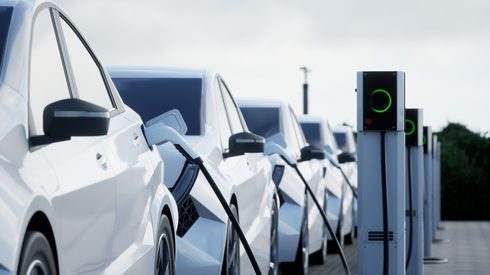‘Black mass’ – the remains of a battery pack after end-of-life shredding and processing – will need a common set of global specifications for recycled battery raw materials for it to be commoditized, Blue Horizon Capital index fund president Tony Fusco told Fastmarkets in an interview.
“To be a traded or listed commodity, the material needs to have a global specification. For black mass, it will be difficult to commoditize for now given that black mass specifications will vary depending on the battery types recycled,” he said.
The pricing for black mass would then vary depending on the specific content of lithium, cobalt, nickel, manganese and other materials, as well as depending on the batch of batteries it came from.
Blue Horizon Capital is an index, advisory and research company that aims to help investors capture opportunities in the new energy economy.
“Black mass is sold and bought today but until the automotive industry consolidates around a single battery chemistry type, there will be many different versions of black mass. If a seller of black mass has a valid certificate of analysis, there are buyers today,” Fusco said, adding that buyers definitely exist.
The commoditization of black mass will also be easier if the battery and automotive industries agree to a consistent cathode chemistry with the same percentages of nickel, cobalt and lithium, since these are the most valuable elements in a lithium-ion battery.
“However, battery and auto producers want to differentiate their performance and products with better battery performance, so it is unlikely that the world will conform to one standard. That is like asking automakers to agree to only have one type of engine in all automobiles, Fusco said.
National defenses may also impede the global commoditization of black mass and recycled battery raw materials, Fusco said.
“Geographic regions will want to control their local black mass supply,” he said. This is especially the case since several nations list battery raw materials and other minerals as critical to a their national security.
The United States recently announced the Minerals Security Partnership to maintain the supply of critical minerals amid an energy transition drive. The partnership will use investment from the public and private sectors for strategic opportunities across the critical minerals supply chains, even amid surging prices for battery raw materials.
It counts Australia, Canada, Finland, Germany, Japan, South Korea, Sweden, the United Kingdom and the European Commission as partners.
The partnership is also a clear sign of a continued global shortage of battery raw materials, Fusco said. He expects demand for recycling to keep growing, especially an anticipated future deficit of critical metals such as lithium, cobalt and nickel.
“The overall battery supply chain is largely controlled in Asia, although North America and Europe activity is heating up. This can be seen in the total addressable market in the US and Europe, which grew to 800,000 tonnes of lithium ion battery (LIB) equivalent per year in 2022 from 375,000 tonnes of LIB equivalent per year in 2021,” Fusco said.
This is also the reason why he has included battery recyclers in the Blue Horizon New Energy Economy exchange-traded fund, especially since they form an important and growing component of the new energy economy.
The ETF, which is listed on the New York Stock Exchange, includes 100 companies that Blue Horizon Capital has identified as disruptors and leaders of energy transition, and includes one battery recycler, and a number of other battery-related companies that also has battery recycling capabilities.
“It will become even more important as large-format electric vehicle batteries expire in the coming years,” Fusco said.
Spot prices for lithium have jumped dramatically in the past two years on surging demand from Asia. Fastmarkets assessed lithium carbonate, 99.5% Li2CO3 min, battery grade, spot prices, cif China, Japan and Korea at $75.00-80.00 per kg on April 12, its highest since the assessment began in July 2017. This compares with $6.50-8.50 per kg on May 14, 2020.
Future-proofing
Battery recyclers will need to overcome multiple hurdles to grow in the coming years, Fusco said.
They will need proven and patented technology that is economical and produces battery-grade materials, as well as the capacity to bring their products to market rapidly with ample access to significant readily available capital to scale up to succeed, he said.
They will also need to form robust and integrated customer networks via long-term partnerships with key customers, largely because battery and automotive original equipment manufacturers (OEMs) want to close the recycling loop, he added.
Their management teams will need hands-on experience in the processes of the chemicals, advanced materials and metals industries, as well as experience in scaling large capital-intensive sectors, Fusco said.
Politics and environmental laws may make cross-border sharing of materials more difficult, he noted.
But with the growing battery market, expiring EV batteries and new EV adoption rates will drive and sustain battery-recycling businesses, Fusco said, especially if governments recognize the need for sustainable domestic supply, and provide financial support to facilitate availability.
Battery and auto OEMs that try to close the loop themselves will probably spend more money and take more time to be successful, especially with the recycling and processing of end-of-life battery being vastly different from making one or constructing a car.
To keep up to date with the latest news and insights in the battery materials market, visit our dedicated battery materials page.





